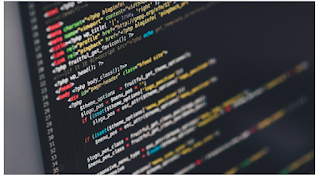Programming is both an art and a science, requiring a deep understanding of logic, problem-solving, and creativity. To become a proficient programmer, one must learn and apply various programming techniques. In this article, we will delve into some essential programming techniques that empower developers to write efficient, maintainable, and scalable code.
1. Object-Oriented Programming (OOP):
Object-Oriented Programming is a widely adopted programming paradigm that organizes code around objects, which are instances of classes. OOP emphasizes the concept of encapsulation, where data and functions are bundled together within objects, promoting modularity and code reusability. Key principles of OOP include inheritance, polymorphism, and abstraction. By structuring code into classes and objects, OOP enhances code organization, promotes code reuse, and simplifies complex systems.
2. Functional Programming (FP):
Functional Programming is a programming paradigm that treats computation as the evaluation of mathematical functions. It emphasizes immutability, pure functions, and avoiding side effects. In functional programming, functions are treated as first-class citizens, allowing for higher-order functions and function composition. By focusing on declarative and immutable code, functional programming facilitates code readability, encourages modular design, and enables easier testing and debugging.
3. Modular Programming:
Modular programming is a technique that involves breaking down a program into smaller, self-
contained modules or functions. Each module focuses on a specific task or responsibility, promoting code reusability, maintainability, and scalability. Modular programming enhances code organization and readability, facilitates collaboration among developers, and allows for independent testing and debugging of individual modules.
4. Algorithm Design and Analysis:
Algorithm design is a crucial aspect of programming, as it determines the efficiency and performance of a program. Understanding different algorithms, their time and space complexity, and their suitability for specific tasks is essential. Techniques such as searching, sorting, graph traversal, and dynamic programming play a vital role in algorithm design. By choosing and implementing efficient algorithms, developers can optimize program performance and minimize resource usage.
5. Error Handling and Exception Handling:
Effective error handling is crucial in programming to ensure robustness and reliability. Error handling involves anticipating potential errors, validating inputs, and implementing appropriate mechanisms to handle exceptions or errors gracefully. Techniques such as try-catch blocks, error logging, and defensive programming help identify and handle errors, preventing program crashes and providing meaningful feedback to users.
6. Code Refactoring:
Code refactoring is the process of restructuring existing code without changing its external behavior. It aims to improve code readability, maintainability, and performance. Refactoring techniques include extracting reusable functions, simplifying complex code, eliminating code duplication, and optimizing algorithms. Regular code refactoring reduces technical debt, enhances code quality, and facilitates future enhancements or modifications.
7. Test-Driven Development (TDD):
Test-Driven Development is a development approach that advocates writing tests before implementing the actual code. With TDD, developers define the expected behavior of a function or module through unit tests and then write the code to pass those tests. This technique promotes code modularity, simplifies debugging, and ensures that the codebase remains stable and reliable over time. TDD leads to better software design, increased test coverage, and faster development cycles.
Conclusion:
Programming techniques are the building blocks of efficient and high-quality code. By mastering essential programming techniques like OOP, FP, modular programming, algorithm design, error handling, code refactoring, and TDD, developers can write code that is easier to maintain, more robust, and scalable. These techniques empower programmers to tackle complex problems, optimize performance, and create software solutions that meet the highest standards. Continuous learning and practice of programming techniques are essential for every aspiring programmer's journey towards mastery of their craft.







